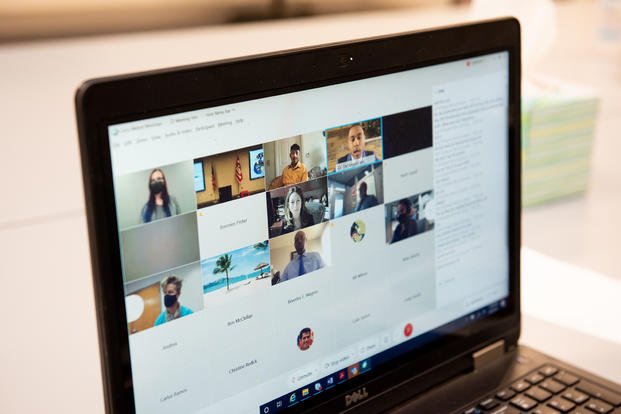Online social networking is an efficient way to establish and maintain relationships with others in your field.
Finding and meeting people who can help you with contacts that can then be helpful in job searches, sales leads and other business contacts is easy to do with the help of the internet. Introverts may be particularly attracted to networking online, because it may seem more comfortable.
While there are many advantages of using online tools to assist your networking, the one major disadvantage -- and it's a big one -- is that it isn't face-to-face contact (even if you are using video conferencing). Face-to-face, eye-to-eye contact is the only way we build true reciprocity with another human.
The theory of reciprocity simply states that if you do something for someone, they will generally feel obligated to return the good will. This is the reason proper networking is so successful.
Digital networks are weaker links, but they extend a person's reach further, even across industry and geographic boundaries. This helps people link up by skill level and talent needs. Supporting networking online also encourages the spread of new ideas at a very rapid pace.
The best characteristic of digital social networks is that they are completely inclusive, unlike some of the more traditional face-to-face organizations. Digital networks welcome almost anyone. However, this benefit is also a weakness.
Too many people use social networking sites in a ubiquitous, incessant, compulsive drive to make dozens to hundreds of digital connections that lack true meaning. Real networking has a foundation in face-to-face encounters. Digital social networking should be viewed as a support and supplement to face-to-face networking.
The daily, and sometimes hourly or more frequent, check-ins and shoutouts are a form of social contact different from networking and thus should be viewed and treated differently. There is no question that some people gain some traditional networking benefits from the micro-contact approach, but the personal ties are not that firm, and if they are not reinforced by face-to-face encounters, there will be no real long-term trust or reciprocity established.
For better or worse, the traditional face-to-face networking encountered through smaller membership-based, agenda-based organizations generally creates stronger networks, because most members know each other, and thus the sharing of information is encouraged and will certainly be returned. Digital networks, in contrast, create a much less loyal connection and therefore are not likely to create the environment for as many favors.
People build trusting relationships with others they know by looking them in the eye, shaking their hand and getting that "intuitive feeling" about them. As fast and efficient as the internet is, it doesn't facilitate trust building. There is still no known substitute for face-to-face contact.
Despite the time, distance and technological advantages of online networking, this downside has yet to be overcome. You cannot build rapport and trust online. This chemistry is still done eye to eye in the physical presence of another person. While we encourage the use of technological tools, they are still just tools to support what you must do primarily in person.
During your military transition, definitely utilize online networking tools to connect with others and get your name out there. However, online networking should not be your primary strategy for establishing relationships. You have to get off-line and begin meeting others in person in order to build trust and lasting relationships that will eventually spawn career opportunities.
Michael Abrams is an Afghanistan veteran and founder of Four Block, a veteran career development program based in New York. He is the author of "Business Networking for Veterans" as well as an adjunct professor at Fordham University.
Stay On Top of Your Veteran Benefits
Military benefits are always changing. Keep up with everything from pay to health care by subscribing to Military.com, and get access to up-to-date pay charts and more with all latest benefits delivered straight to your inbox.











